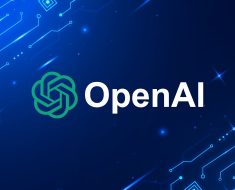In today’s rapidly evolving job market, AI skills have emerged as the new currency that can significantly enhance your career prospects. As businesses increasingly incorporate artificial intelligence into their operations, the demand for professionals proficient in AI is skyrocketing. This article explores the growing need for AI skills and provides insights on how you can upskill to stay competitive in this dynamic landscape. The AI workforce is expanding, and understanding how to navigate this trend is crucial for your career success.
The Growing Demand for AI Skills in the AI Workforce


The integration of AI into various sectors has led to a surge in job opportunities that require AI expertise. According to PwC’s Global AI Jobs Barometer, job postings for AI-related roles are increasing at a rate three-and-a-half times faster than for all jobs. This trend reflects the critical role AI plays in driving productivity and innovation across industries. Sectors such as financial services, information technology, and professional services are experiencing nearly five times higher labor productivity growth due to AI adoption. The AI workforce is becoming a pivotal component in these sectors, creating a competitive edge for businesses¹.Moreover, jobs requiring AI skills often come with a wage premium. In some markets, professionals with AI expertise can earn up to 25% more than their peers. This wage disparity underscores the value companies place on AI proficiency and highlights the economic benefits of acquiring these skills². As the AI workforce continues to grow, the financial incentives for acquiring AI skills become even more apparent.
Why AI Skills Matter in the AI Workforce


AI skills are not just for tech professionals. They are becoming essential across a wide range of roles. For instance, data analysts, marketing managers, and even HR professionals are finding that AI tools can enhance their work efficiency and effectiveness. The ability to leverage AI for data analysis, customer insights, and process automation is becoming a key differentiator in the job market. The AI workforce is expanding beyond traditional tech roles, influencing various fields and creating new opportunities¹.Furthermore, AI is transforming how businesses operate, leading to the creation of new roles and industries. As AI continues to evolve, the skills required to harness its potential are also changing. This creates a continuous need for workers to update their skill sets to remain relevant and competitive. The AI workforce is not static; it is dynamic and constantly evolving, requiring ongoing learning and adaptation³.
How to Upskill in AI and Join the AI Workforce


Upskilling in AI doesn’t necessarily mean you need to become a data scientist or a machine learning engineer. There are various pathways to acquiring AI skills, depending on your current role and career aspirations. Being part of the AI workforce means understanding how to effectively integrate AI into your existing skill set.
1. Online Courses and Certifications: Numerous online platforms offer AI courses that cater to different skill levels. For beginners, courses like “AI for Everyone” on Coursera provide a solid foundation in AI concepts. For those seeking advanced knowledge, programs like MIT’s Professional Certificate in Machine Learning & Artificial Intelligence offer in-depth training.
2. Hands-On Experience: Practical experience is invaluable when learning AI. Engaging in projects that involve AI tools or collaborating with AI teams at your workplace can provide real-world insights and enhance your understanding of AI applications.
3. Continuous Learning: AI is a rapidly evolving field, so staying updated with the latest trends and technologies is crucial. Participating in webinars, attending conferences, and joining AI-focused communities can help you keep abreast of developments in the field.
4. Specialized Skills: Certain AI skills are particularly in demand. For example, prompt engineering, which involves crafting effective instructions for generative AI tools, is a valuable skill that can open doors to numerous opportunities. Similarly, data management skills are crucial as organizations increasingly rely on data-driven decision-making².
The Role of Employers in Upskilling the AI Workforce


While individual efforts to upskill are important, employers also play a crucial role in fostering an AI-ready workforce. Companies can support employee development by offering training programs, providing access to learning resources, and encouraging a culture of continuous learning. By investing in their workforce’s AI skills, businesses can enhance their competitiveness and drive innovation. The AI workforce is not just a collection of individuals; it is a collaborative effort between employees and employers to build a future-ready team³.
Conclusion
AI skills are becoming indispensable in today’s job market. As AI continues to reshape industries, the ability to work with AI technologies will be a key factor in career advancement. By proactively acquiring AI skills and staying updated with industry trends, you can position yourself for success in this AI-driven era. Whether you’re a seasoned professional or just starting your career, embracing AI as part of your skill set can unlock new opportunities and elevate your professional journey. The AI workforce is not just a trend; it is the future of work, and being part of it can significantly enhance your career trajectory.
Sources:
1. The Impact of AI on the Job Market and Employment Opportunities.
2. 5 Reasons To Get Your Career Onboard With AI Skills Now.
3. AI Skills Can Help You Land a Job or Promotion Faster.
Please note, that the author may have used some AI technology to create the content on this website. But please remember, this is a general disclaimer: the author can’t take the blame for any mistakes or missing info. All the content is aimed to be helpful and informative, but it’s provided ‘as is’ with no promises of being complete, accurate, or current. For more details and the full scope of this disclaimer, check out the disclaimer page on the website.





